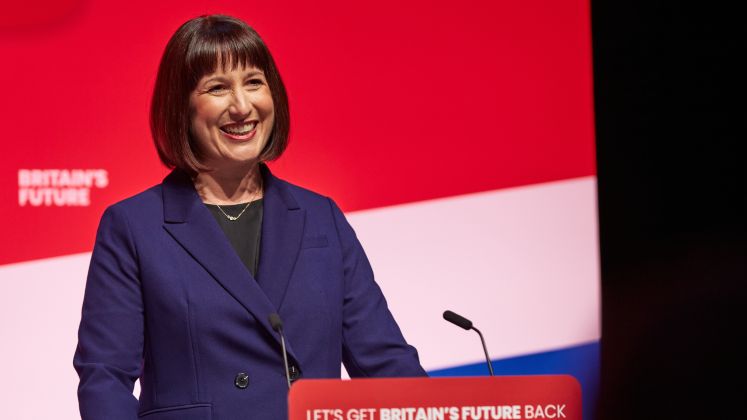 With the party season concluded for another year, and parliament about to return from recess, Tim Leunig casts an eye forward to the political year ahead, and finds that the political fortunes of the three main parties are deeply tied to our dire economic situation.
With the party season concluded for another year, and parliament about to return from recess, Tim Leunig casts an eye forward to the political year ahead, and finds that the political fortunes of the three main parties are deeply tied to our dire economic situation.
Harold Macmillan’s famous quip could not be more appropriate. That Cameron’s vision was not particularly clear in his annual speech to the Conservative party conference last week is of no consequence: his political fortunes are tied up with an economy over which he has little control.
The reality is that Britain is a small open economy. If the world economy performs very badly, then there is no chance of the British economy performing spectacularly well. Of course, we can make a difference at the margin, but we cannot create the “sunny uplands” that Vince Cable correctly remarked could not be seen. A second bout of quantitative easing is probably sensible, although it is not costless particularly to all the people who savings will be slightly eroded. The sorts of plans put forward by Ed Miliband and Ed Balls would also have only a limited effect. The reality is that if you have a significant stock of debt, and a large deficit, you cannot spend as though there is no tomorrow.
Yet without economic growth it is hard for politicians of any colour to realise their ambitions. Opposition, for example, to the significant rise in foreign aid will be more vocal in the absence of growth. Teething problems with the National Health Service reforms, or worse, cannot be covered over with lashings of extra money. Sensible ideas, such as getting the police to patrol singularly rather than in pairs, appear to be all about saving money, rather than about improving efficiency and the quality of the service.
It is well known in politics that losers shout louder than winners over any particular issue. We can already see that with the revisions to the planning system. In this case independent experts are not even clear that the changes will lead to more housing. In any case, governments need economic growth so that the mass of the people do not identify with the losers who are shouting loudly. The government cannot afford for the general public to identify with those who are opposing government policies loudly.
But the government’s great advantage is that there appears to be at the moment no alternative. The public still blame Labour more than the coalition for the economic and financial difficulties that we find ourselves in. There is no alternative party that is not untainted by the past. If the Liberal Democrats were not in coalition it is likely that they would be riding high in the opinion polls. But there is nothing like the realities of government to force a party to face up to its own sacred cows, and thus lose a lot of supporters along the way. Some will no doubt return, particularly in areas in which Liberal Democrats have an incumbent, and hard-working local member of Parliament, but it is unlikely that their share of the vote will return to that seen at the previous general election.
For this reason the British politics is in some sense uninteresting. We do not have two or three clear visions of Britain that are being offered to the electorate. Instead we have a group of politicians whose ideas about how to build a better future are being squashed by the reality of having to save money. The public senses this, and believes are by and large that the cuts would be of the same order of magnitude whoever was in charge. Since the Conservatives, and the Liberal Democrats, did not cause the current mess the public will give them a chance to sort it out. There is no great enthusiasm for either party, but there is a grudging respect.
Britain is a relatively easy country to govern. We are not prone to general strikes, or demonstrations. The current coalition will be able to govern for the entire five years, and it is unlikely that either party will withdraw before the very end. Labour has time to get its house in order, and to come up with a coherent alternative narrative to take Britain forward, which consists of something more than knee-jerk reactions to increase spending and cut taxes. Then politics will be interesting again!
Please read our comments policy before posting.
This article first appeared on the CentreForum blog on 10 October.







